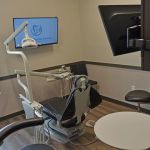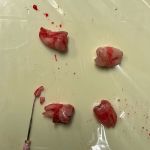- 1-Importance-Of-Dental-Care-For-Braces-Patients
- 2-Daily-Braces-Oral-Hygiene-Practices
- 3-Tools-And-Products-For-Effective-Braces-Cleaning
- 4-Diet-And-Habits-To-Support-Braces-Maintenance
- 5-Professional-Dental-Care-And-Regular-Checkups
- 6-Real-Patient-Stories-And-Practical-Tips
1. Importance of Dental Care for Braces Patients
Maintaining excellent dental care during orthodontic treatment is crucial. Braces create additional surfaces where plaque and food debris can accumulate, increasing the risk of cavities, gum inflammation, and staining. The best dental care routine for braces patients ensures that teeth remain healthy throughout treatment and that the final results are beautiful and long-lasting.
Neglecting oral hygiene can lead to complications that prolong treatment or cause irreversible damage. Understanding why diligent care is necessary motivates patients to adopt effective habits early on.
2. Daily Braces Oral Hygiene Practices
A consistent daily routine tailored for braces includes brushing after every meal using a soft-bristled toothbrush or an electric toothbrush designed for orthodontic care. Patients should angle the brush to clean above and below the brackets thoroughly.
Flossing is equally important but can be challenging with braces. Using floss threaders or specialized orthodontic floss helps remove trapped particles between teeth and wires. Mouth rinses with fluoride offer added protection against decay and help soothe gums.
Spending adequate time and attention on each session prevents plaque buildup and keeps the mouth fresh and healthy.
3. Tools and Products for Effective Braces Cleaning
Several tools improve cleaning efficiency for braces wearers. Interdental brushes can access tight spaces around brackets. Water flossers provide a gentle yet powerful way to remove debris without damaging wires.
Orthodontic-friendly toothpaste and fluoride rinses strengthen enamel, while antimicrobial mouthwashes help control bacteria that cause gum disease. Patients should avoid abrasive toothpaste that might scratch brackets.
Choosing the right products enhances comfort and effectiveness, encouraging adherence to the care routine.
4. Diet and Habits to Support Braces Maintenance
Diet plays a significant role in braces care. Hard, sticky, or sugary foods can damage brackets or promote decay. Patients should avoid items like nuts, caramel, chewing gum, and excessive sweets.
Drinking plenty of water helps wash away food particles and keeps saliva flowing, which naturally protects teeth. Healthy snacks such as fruits, vegetables, and dairy provide nutrients beneficial to oral health.
Adopting mindful eating habits supports both braces longevity and overall well-being.
5. Professional Dental Care and Regular Checkups
Regular visits to both the orthodontist and dentist are vital. Orthodontists adjust braces and monitor progress, while dentists perform cleanings and check for early signs of decay or gum issues.
Professional cleanings remove plaque buildup that at-home care might miss. Dentists can recommend additional preventive treatments like sealants or fluoride applications tailored for braces patients.
Maintaining scheduled appointments is key to preventing problems and ensuring treatment success.
6. Real Patient Stories and Practical Tips
Emily, a braces patient, shares how adopting a dedicated oral care routine transformed her experience: "I used to dread flossing with braces, but water flossers made it easy and effective. My dentist noticed my gums were healthier, which motivated me to stay consistent."
Another patient, James, emphasizes the importance of diet: "Cutting out sticky snacks saved me from broken brackets and extra visits. It was tough, but knowing it protected my smile kept me on track."
These insights highlight that perseverance and the right tools empower patients to maintain excellent dental health while wearing braces.
For expert advice and recommended dental care products, visit Dentistry Toothtruth to support your braces journey with trusted solutions.







 3V Dental Associates of Port Washington4.0 (569 review)
3V Dental Associates of Port Washington4.0 (569 review) Kocian Family Dental5.0 (486 review)
Kocian Family Dental5.0 (486 review) Almond Dental Maple Grove4.0 (413 review)
Almond Dental Maple Grove4.0 (413 review) St Anthony Park Dental Care: Grossmann, Todd A DDS5.0 (4 review)
St Anthony Park Dental Care: Grossmann, Todd A DDS5.0 (4 review) LAX DENTAL and ORTHODONTICS4.0 (107 review)
LAX DENTAL and ORTHODONTICS4.0 (107 review) Aspen Dental - State College, PA3.0 (637 review)
Aspen Dental - State College, PA3.0 (637 review) The Importance of Oral Health Education During Pregnancy for a Healthy Pregnancy
The Importance of Oral Health Education During Pregnancy for a Healthy Pregnancy Best Tips for Brushing Your Teeth Properly for Healthy Gums: Essential Techniques for Oral Health
Best Tips for Brushing Your Teeth Properly for Healthy Gums: Essential Techniques for Oral Health Why Skipping Dental Checkups Can Lead to Bigger Oral Health Problems
Why Skipping Dental Checkups Can Lead to Bigger Oral Health Problems Advantages of Porcelain Dental Restorations
Advantages of Porcelain Dental Restorations How Can Diabetes Cause Tooth and Gum Problems? Preventing and Managing Oral Health Issues
How Can Diabetes Cause Tooth and Gum Problems? Preventing and Managing Oral Health Issues Healthy Habits for Promoting Good Oral Health and Hygiene: Tips for a Healthy Smile
Healthy Habits for Promoting Good Oral Health and Hygiene: Tips for a Healthy Smile